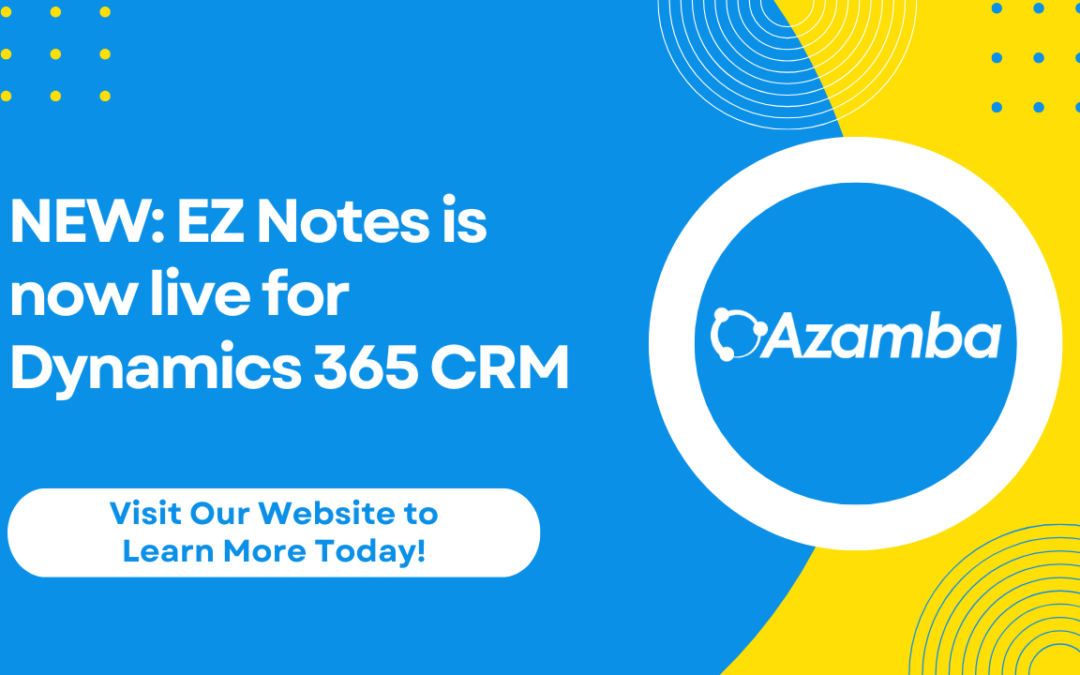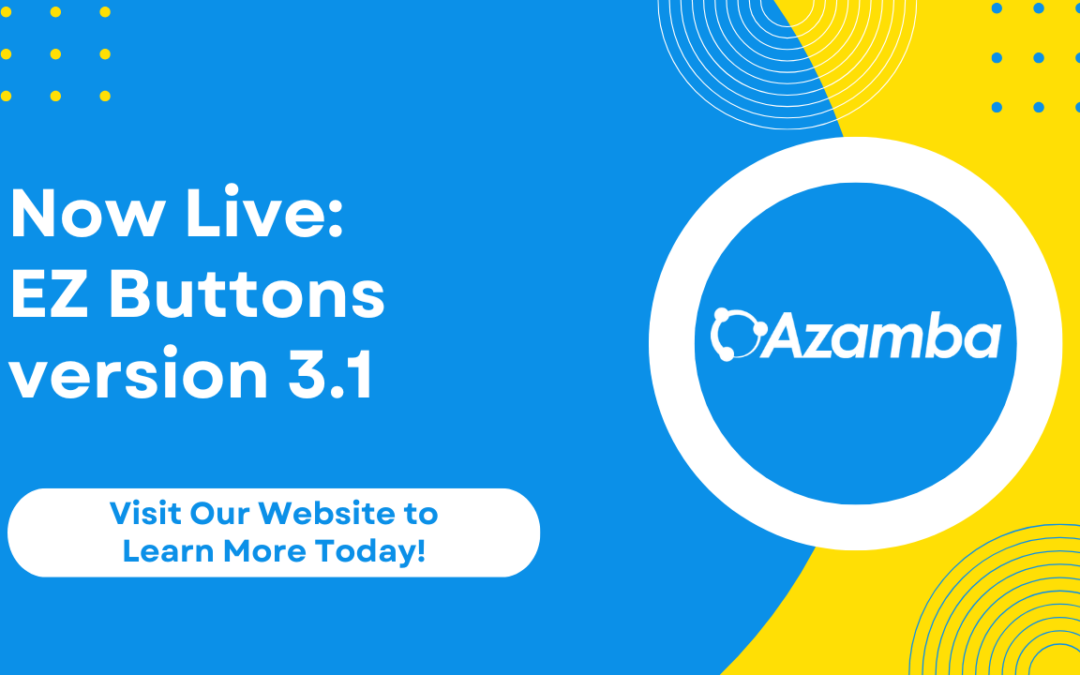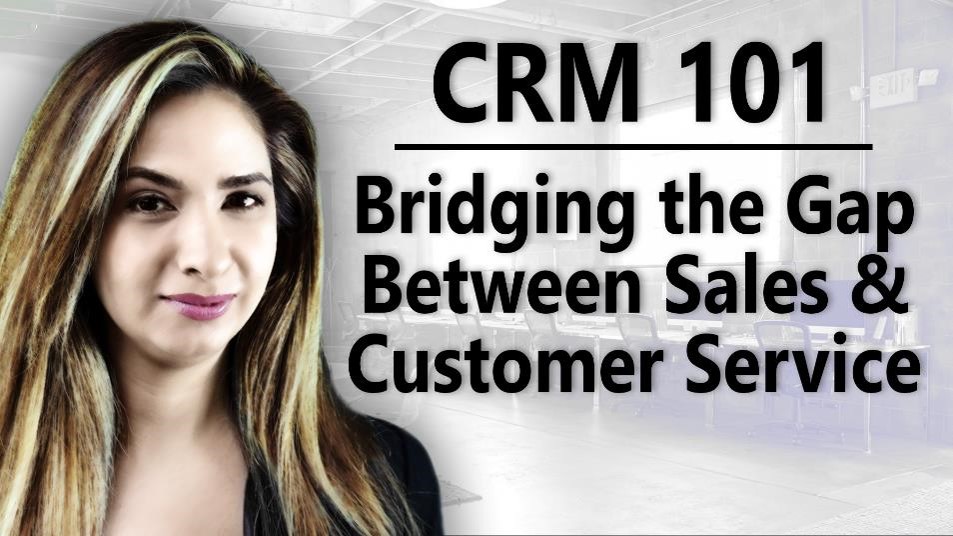The Most Important Part of CRM Implementation for Salespeople
The Most Important Part of CRM Implementation for Salespeople
Salespeople need to get involved early
CRM implementation for salespeople can be a touchy subject. CRM tends to be an easy sell at the executive and management levels. After all, there are lots of great reasons why your company should use CRM.
But what’s in it for you, the salesperson? Organizational benefits are all well and good, but your job boils down to your sales numbers.
“
CRM is supposed to help you win more, faster and easier.
”
Your time is extremely valuable, both to you and your organization. So for CRM to be worth your time, it needs to improve your numbers without destroying your efficiency.
A good CRM system does exactly that.
I’ve said it before and I’ll say it again here: a well-implemented CRM system will help you sell.
Of course, a poorly-implemented CRM will provide few benefits, and could even slow you down. So how do you ensure a useful CRM implementation for salespeople like you?
The key to a CRM system that is worth your time and effort is to get involved in your CRM adoption early.
Here’s why:
CRM is supposed to help you sell
Study after study has confirmed what we all know to be true: business leaders expect business technology to make their companies more money.
With CRM, that means increasing sales and sales efficiency. CRM is supposed to help you win more, faster and easier.
If CRM helps you sell, then that’s a big win for you and for your company. If it doesn’t, there is something seriously wrong.
The trick, then, is to make sure your CRM is an effective sales tool.
As a salesperson, you know what obstacles you face. The resources at your disposal, including CRM, should be optimized to remove as many of those obstacles as possible.
But CRM has many uses for many different roles, and it can be easy for well-meaning managers and executives to lose track of user needs. Therefore, it is critical that salespeople are part of the conversation right from the beginning. Your CRM must be a useful sales tool, not just a useful management tool or a flashy spreadsheet.
CRM is a spacecraft, not a capsule
There’s a wonderful scene in the 1983 film The Right Stuff when the Mercury astronauts inspect their spacecraft only to find that NASA scientists have ignored their needs when building it.
There is no window. There is no hatch. There are no maneuvering thrusters. In this design, the astronauts are not the pilots of the rockets. They are the test subjects for the scientists who built the rockets. They are “Spam in a can.”
Even the language the two groups use shows how far apart they are: “capsule” vs. “spacecraft,” “astronaut occupant” vs. “pilot,” and so on.
It isn’t until the astronauts remind the scientists of their role in creating funding for the project that the two groups begin to work together. As one astronaut puts it, “No bucks, no Buck Rogers.”
Had the astronauts not asserted themselves, they would have been little more than passengers hurtling blindly into the unknown. The same is true for salespeople and CRM. That’s because the most brilliantly engineered and implemented tool will still fail if it’s not designed with its users in mind.
So make your needs clear early and often. What processes need streamlining? What automations will save you time or improve the quality or consistency of your customer communications? What information do you need to have access to or track more efficiently? What reports do you need?
You need to get your window, and your hatch, and your thrusters. You need a spacecraft, not a capsule.
After all, no Buck Rogers, no bucks.
CRM by managers only can become CRM for managers only
Of course, the NASA scientists were not the enemy. They simply got caught up in what they needed. But it wasn’t until the astronauts and scientists began to work together that the program truly took off (pun absolutely intended)!
In the same way, managers and executives can sometimes lose sight of sales goals when implementing a flashy new CRM system. But you are all still on the same team, and it’s important to work together when implementing something as complex as CRM.
One of the primary benefits of CRM for managers is increased visibility into the divisions and processes they manage. More specifically, CRM helps sales managers track sales metrics to understand and improve processes, forecasts, and goals.
Good sales managers use the information they gain from CRM productively rather than punitively. They learn from what works to improve processes, mentor and train individual salespeople, and boost overall sales.
“
You need a CRM implementation for salespeople, not just for sales managers.
”
Nevertheless, a real risk during CRM implementation is that data can be elevated above sales.
Even good managers can lose track of the underlying purpose of CRM during an implementation. They can become too enamored with the data, too focused on sales metrics over sales and salespeople.
Like the NASA scientists, they can forget that they are dealing with pilots, not passengers.
Managers need data, and frankly, so do you! But you also need to spend as much of your time selling as possible.
If CRM data entry is too difficult or time consuming, it can get in the way of your sales rather than enabling them. With no room to maneuver, you become Spam in a can.
The data on data entry tells two stories
There is often a real disconnect between the time your boss thinks it should take you to do data entry and the time it actually takes. According to a 2017 Hubspot study, 26% of managers believe their sales team spends less than 30 minutes per day on data entry compared to only 16% of individual contributors (see: the people actually doing most of the data entry).
The view is even more polarized from the top. 34% of C-level executives expect less than 30 minutes of data entry per day, and only 21% believe it takes an hour or more (compared to 45% of individual contributors who say it does).
In that same study, 23% of the salespeople surveyed cited manual data entry as their biggest CRM obstacle.
And yet, the benefits of all this data are very real. A 2014 Software Advice survey found that 74% of users said their CRM system gave them improved access to customer data, and 64% claimed their CRM improved customer relationships.
The trick is making sure you get a system that provides you and your managers with the benefits you need without hamstringing anyone’s ability to do their job. You need a CRM implementation for salespeople, not just for sales managers.
You need a spacecraft, and they need the data. So how do you make sure everyone gets what they need?
Get involved early and often
Don’t wait for CRM to simply happen. Show interest early. Ask for input into the adoption and implementation processes. Make your needs known. Ensure the system will work for you.
If your CRM rolls off the assembly line without a window, it will take more than a 4-minute scene to fix the problem.
With early input and buy-in from you and the rest of the sales team, your CRM system is more likely to boost your sales. That’s good for you, and it’s good for your company.
As a salesperson, you understand the value of a win. When you take an active role early, you can help make CRM a win-win.
Azamba Launches EZ Notes: A Smarter, Simpler Way to Take and Manage Notes in Dynamics 365 CRM
Chicago, IL – [March 19th, 2025] - Are messy, disorganized notes wasting your team’s time and leaving critical details lost in the shuffle? Do you spend more time searching for information than acting on it? EZ Notes is here to end the frustration and take the chaos...
Powerful New Updates to Accelerate Sales for Microsoft Dynamics 365 CRM Users
Chicago, IL – [March 5th, 2025] – Azamba is excited to announce the release of EZ Buttons 3.1. This powerful CRM Add-On for Microsoft Dynamics 365 simplifies tasks and makes CRM a breeze to use. With this CRM Add-On, you will work faster and smarter with less...
Azamba releases EZ Buttons 3.0!
Chicago, IL – [November 20th] - We are thrilled to bring you EZ Buttons 3.0, a game-changing update packed with powerful tools to streamline your sales process and help you get more done, faster. With EZ Buttons, turn time-consuming, multi-step tasks into quick,...
Microsoft Dynamics 365 Business Central + CRM Integration Demo | Dynamics Deep Dive Series
In This Demo You Will Learn To: Personalize your CRM to focus on the data that matters most. Create custom dashboards to track critical metrics efficiently. Use data views to help your team make smarter, faster decisions. Simplify Your Sales Process with the Business...
How to Track Your Goals and Metrics in Microsoft Dynamics 365 CRM – Dynamics Deep Dive Series
In the fast-paced world of sales, efficiency and clarity in managing goals and activities are extremely important. Microsoft Dynamics 365 CRM is a transformative solution for sales teams looking to enhance productivity and smash their sales targets. Join experts Peter...
Why MSP’s Should add CRM to their Solution Portfolios
We’re entering a new era in CRM. All the old reasons for customers buying CRM are still valid. But the advent of AI is making the case for renewed interest in CRM. To modify an adage, “If it’s interesting to my customers, then it is fascinating to me!”. AI is...
Boost Your MSP Earnings with Strategic Partnerships
Time is money, we’ve been told since childhood. The idea is that people should focus their attention on the things that bring value to them, and avoid the things that don’t. Since time is a precious resource, it makes sense to try and maximize its utility as it’s the...
CRM Launch in 5 Weeks – Get Results Fast!
CRM is becoming a must-have tool for businesses to stay competitive. But the process of setting it up often wastes time and resources without getting the expected results. To solve this, we've created an approach that makes successful CRM easier to achieve than ever....
How Most CRM Projects Fail & Yours Won’t | CRM Strategy
Did you know that, according to a Gartner study, between 40 to 70% of CRM implementations fail? If you're a small or medium-sized business, this can seriously impact your budget, and you could lose out on profitable opportunities. CRM can be a game-changer for your...
Do This to Avoid Wasting Time and Money With Your CRM
CRM Strategy: The Key to Avoiding a Costly Mistake CRM can either be a game-changing investment for your business or a massive waste of time and money. The difference depends entirely on your approach. Like many businesses, you want to boost sales and increase...
David Marincic is Partner Experience Manager at Azamba. He also manages and edits Azamba publications and social media channels.
David believes in the importance of good planning, sound practice, effective communication, and continued education in order to get the most from any technology solution.
Related articles:

Azamba Launches EZ Notes: A Smarter, Simpler Way to Take and Manage Notes in Dynamics 365 CRM
Chicago, IL – [March 19th, 2025] - Are messy, disorganized notes wasting your team’s time and leaving critical details lost in the shuffle? Do you spend more time searching for information than acting on it? EZ Notes is here to end the frustration and take the chaos...

Powerful New Updates to Accelerate Sales for Microsoft Dynamics 365 CRM Users
Chicago, IL – [March 5th, 2025] – Azamba is excited to announce the release of EZ Buttons 3.1. This powerful CRM Add-On for Microsoft Dynamics 365 simplifies tasks and makes CRM a breeze to use. With this CRM Add-On, you will work faster and smarter with less...



